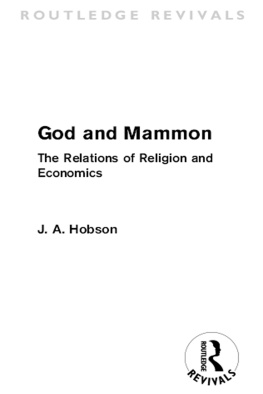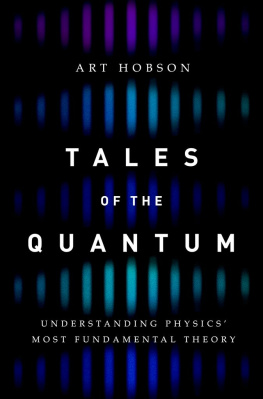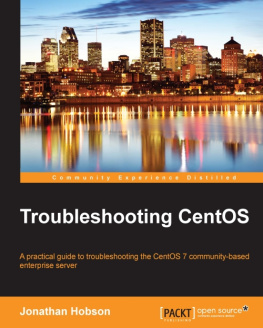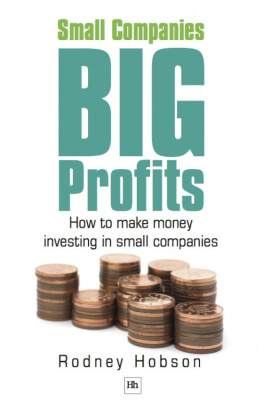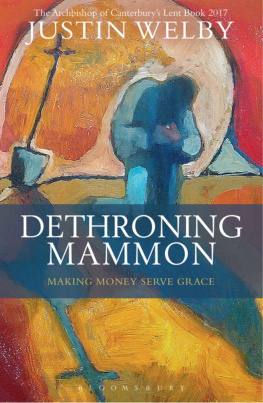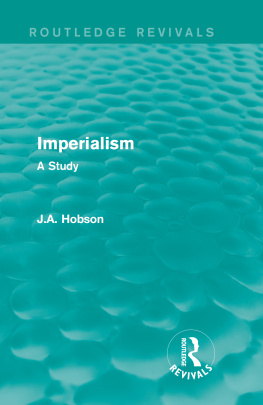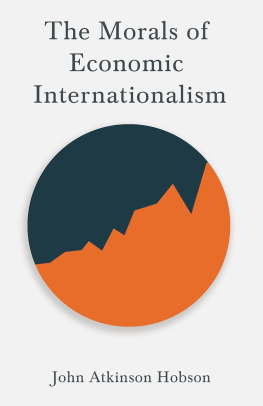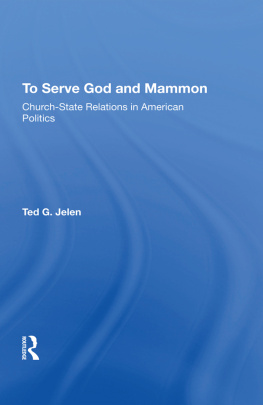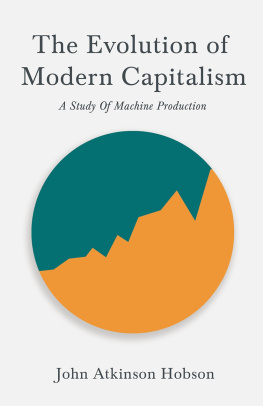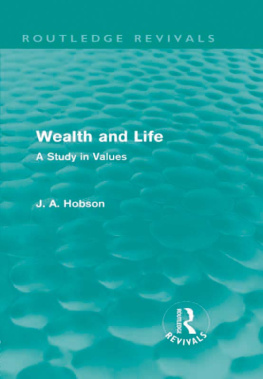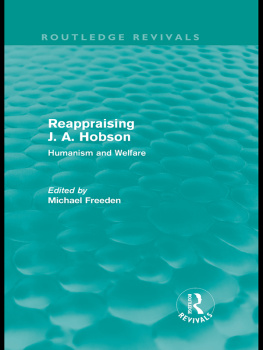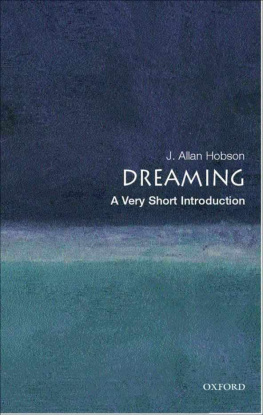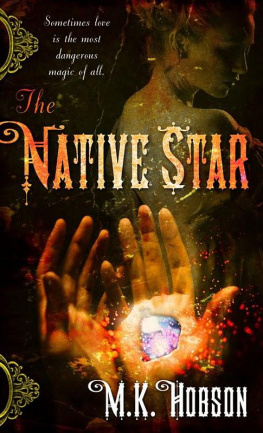Routledge Revivals
God and Mammon
First published in 1931, this is an attempt by the great economist J. A. Hobson to analyse the relations between economics and religion. After considering the origins of the conflicts and compromises between God and Mammon in the life of primitive man, the author concerns himself primarily with medieval and modern Christianity and the business climate and ethos corresponding with these periods. In particular he focuses upon Catholicism and Protestantism, before considering the attitude of the church towards modern economic movements.
God and Mammon
The Relations of Religion and Economics
J. A. Hobson

First published in 1931
by C. A. Watts & Co Ltd
This edition first published in 2011 by Routledge
2 Park Square, Milton Park, Abingdon, Oxon, OX14 4RN
Simultaneously published in the USA and Canada
by Routledge
711 Third Avenue, New York, NY 10017
Routledge is an imprint of the Taylor & Francis Group, an informa business
All rights reserved. No part of this book may be reprinted or reproduced or utilised in any form or by any electronic, mechanical, or other means, now known or hereafter invented, including photocopying and recording, or in any information storage or retrieval system, without permission in writing from the publishers.
Publisher's Note
The publisher has gone to great lengths to ensure the quality of this reprint but points out that some imperfections in the original copies may be apparent.
Disclaimer
The publisher has made every effort to trace copyright holders and welcomes correspondence from those they have been unable to contact.
A Library of Congress record exists under LC Control Number: 32000088
ISBN 13: 978-0-415-69990-7 (hbk)
ISBN 13: 978-0-203-12741-4 (ebk)
The Forum Series.No. 13.
GOD AND MAMMON
THE RELATIONS OF
RELIGION AND ECONOMICS
BY
J. A. HOBSON
LONDON:
WATTS & CO.,
5 & 6 JOHNSON'S COURT, FLEET STREET, E.C.4
FIRST PUBLISHED, JUNE 1931
PRINTED AND PUBLISHED IN GREAT BRITAIN FOR THE RATIONALIST PRESS ASSOCIATION LIMITED BY C. A. WATTS & CO. LIMITED, 5 & 6 JOHNSON'S COURT, FLEET STREET, LONDON, E.C. 4
PREFACE
T HIS brief attempt at an intelligible analysis and survey of the relations between economics and religion has some difficulties to encounter. Even had I possessed the necessary knowledge, spacial limits would have precluded an extension of my enquiry into all or most of the great religions of the world. Even the most condensed statement of facts in so many fields would have left no scope for the necessary interpretation.
Under such circumstances it seemed best, after a short preliminary chapter dealing with the beginnings of the conflicts and compromises of God and Mammon as shown in the life of primitive man, to confine myself to selected studies in medieval and modern Christianity, and in the business life coeval with these religious phases, so as to bring out most clearly the mingled aspects of discord and harmony.
Particular attention is given to the attitude adopted towards modern business life by what Matthew Arnold termed the Protestantism of the Protestant Religion as illustrated in the Calvinist churches of Western Europe, in Wesleyanism, among Baptists and Quakers, chiefly in Britain and the United States. The material aid rendered by God and Mammon to one another in the pursuit of this world's goods demands a closer psychological analysis than has here been possible. But I take it to be a main purpose of this Forum Series to stimulate thought and evoke study in many readers. Though an increasing volume of attention has in recent years been devoted to the relation between Capitalism and Religion, some of the richest fields still remain unexplored. Readers of this essay will readily recognise how deep a debt I owe to Mr. R. H. Tawney's work, Religion and the Rise of Capitalism, as well as to several other recent writers.
J. A. H.
February, 1931
CONTENTS
CHAP.
CHAPTER I
Economics in Primitive Religions
P RIMITIVE man cannot be properly described as either an economic or a religious being. But in his earliest history we can discern in him groups of instinctive and conscious urges and activities which led him later on to the distinction between the satisfaction of his bodily needs and that of his spiritual needs. From the beginning both the opposition and the co-operation of economics and religion, God and Mammon, were latent in man's life. We see him, first, an animal among other animals, seeking to eat and to avoid being eaten, superior to other animals in using and making shelter, and in getting weapons, tools, coverings, and ornaments from the material of his environment, instead of growing them as parts of his body. Thus forced to explore the place in which he lives, in order to utilize its resources for the protection of himself and his species, he comes to realize nature as containing powers partly friendly, partly hostile, to his life. His dawning imagination dwells more upon the irregular and hostile activities of nature than upon the normal and friendly ones. Storms, pestilences, droughts, famines, floods, and other perilous eccentricities of nature work powerfully upon his mind. He easily comes to attribute such happenings to inimical powers inhabiting and moving natural objects, which must be circumvented or appeased. His early endeavours to influence nature were not by methods we can call religious. He did not at first conceive nature as operated by gods or other beings like himself though stronger. But he recognized forces of nature that might be affected favourably in their working by what we call Magic. Frazer, in his great study, The Golden Bough, distinguishes two sorts of Magicimitative and contagious. You could get rain by pouring some water on the ground, giving the tip, so to speak, to the clouds, or you could injure your enemy by getting possession of a bit of him, his hair or nail clippings, or by making an image of him, or even by the injurious use of his name. But not everyone knew enough of the mysterious ways of nature to do such things successfully. So in a tribe the magician, witch doctor, or wizard would gain recognition as an expert, knowing and influencing the ways of nature. Such magic may be accounted the beginning both of science and religion, which for some little distance went hand-in-hand together.
Doubtless the keener imagination of certain men came very early to endow the forces of nature with wills, desires, and purposes like those they felt working in themselves, and with some sort of person operating them. So came animism, a sort of half-way house on the road to definite religion. Some anima, or spirit, inhabited each bit of organic nature; each tree or shrub, and all moving objects of inorganic nature, stars, ocean, rivers, the very earth itself, were the residence of some ruling spirit. Though fear was the chief begetter of religion, it was not the only ingredient in early religious belief and emotion. The survival of the souls of the dead in some sort of existence was an early widespread belief; and some reverent regard tempered the fear which doubtless predominated among the survivors who worshipped these ancestors. Nor can we disregard some sentiment of the sublime and beautiful in the feelings of early man towards the most impressive beings in nature. As personification became more distinct, we cannot wonder that the sun, the moon, mother-earth and her generative powers became objects of worship, chiefly for the benefits they could confer upon or withhold from man, but also on their own account for the majesty of their form and power.

